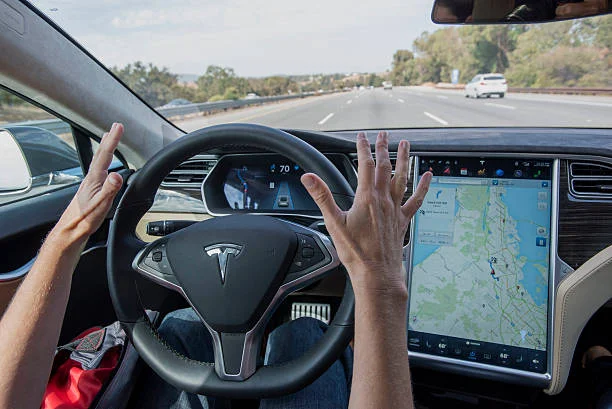NHTSA Probes Tesla's Autopilot System for Extended Hands-Off Driving Risk
NHTSA Probes Tesla's Autopilot System for Extended Hands-Off Driving Risk
The U.S. National Highway Traffic Safety Administration (NHTSA) is currently conducting an investigation into Tesla's Autopilot driver assistance system. Recently released documents on Tuesday reveal that the NHTSA is seeking clarification regarding a software modification that permits drivers to keep their hands off the steering wheel for an extended period, thereby increasing the risk of potential collisions.
In a special order dated July 26, the NHTSA has instructed Tesla to provide detailed responses to inquiries about the alteration to the Autopilot system. Notably, this order does not mandate a vehicle recall. The NHTSA expresses concern in a letter to Tesla that the relaxation of controls within the system could potentially lead to increased driver inattention and a higher likelihood of drivers failing to properly supervise the Autopilot technology.
This situation highlights the challenges faced by regulatory bodies in overseeing rapidly evolving vehicle technologies, particularly those that can be modified through software updates delivered over the air. The NHTSA's inquiry seeks information on the introduction date of the software update, the extent of its impact on vehicles, the rationale behind its implementation, and any incidents involving collisions or near-misses related to vehicles equipped with the updated software.
The NHTSA also raises the issue of public awareness of this software feature and expresses concern that more drivers might attempt to activate it now that its existence is known. This comes in the wake of an earlier tweet from Tesla's CEO, Elon Musk, indicating that the alerts reminding drivers to keep their hands on the steering wheel will be gradually reduced.
Elon Musk's statements regarding the safety of Tesla's technology are soon to be put to the test, as Tesla is expected to defend itself later this year in a trial involving allegations that the failure of the Autopilot system contributed to a fatal accident. Despite this, Tesla's stock has shown resilience, with shares experiencing a 7% increase in late trading on Tuesday, surpassing the broader market's performance.
The acting head of the NHTSA, Ann Carlson, mentioned that a resolution to the Autopilot investigation is impending, emphasizing the importance of driver monitoring systems that account for human tendencies to overly rely on technology. Meanwhile, major automakers are competing to implement hands-free driving technologies, with companies like General Motors and Mercedes-Benz challenging Tesla's Autopilot system by employing more robust monitoring mechanisms to ensure driver attention.
The NHTSA's investigation into Autopilot's performance stems from a series of incidents where Tesla vehicles collided with stationary emergency vehicles. The agency is also exploring whether Tesla's driver assistance system effectively ensures that drivers remain attentive while using the technology. A previous probe involving 830,000 Tesla vehicles was upgraded to an engineering analysis in June 2022, indicating the agency's increased scrutiny.
While Autopilot aims to enable automated steering, acceleration, and braking within a lane, "Enhanced Autopilot" and "Full Self-Driving" encompass more advanced driving tasks. Tesla emphasizes that these technologies require active driver supervision and do not confer full vehicle autonomy.
The NHTSA's special order mandates Tesla to furnish relevant documents and explanations by August 25 to aid in the investigation. Failure to comply within the stipulated timeframe could result in penalties amounting to $26,315 per day.





